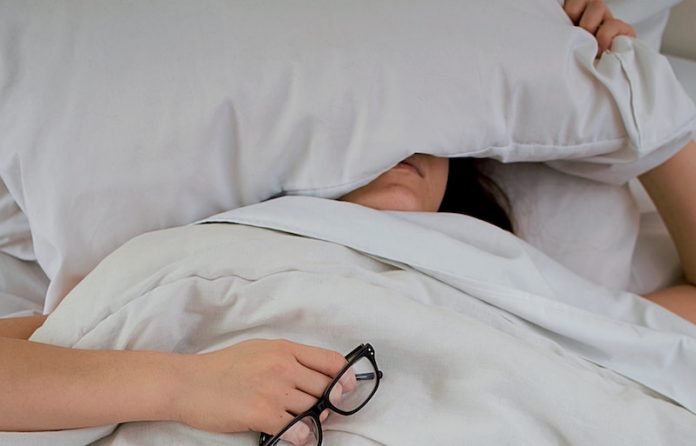
Scientists from the American Academy of Sleep Medicine found about 56% of Americans have “COVID-somnia,” an increase in sleep disturbances during the pandemic.
They found in people reporting these disturbances, 57% say they’re having trouble falling or staying asleep.
About 46% are sleeping less; 45% are experiencing worse sleep, and 36% are having disturbing dreams.
The research is published in the Journal of Clinical Sleep Medicine and was conducted by Jennifer Martin et al.
Insomnia is often caused by stress or lifestyle factors, and those have, of course, changed greatly during these nearly two years of the pandemic.
Some of those lifestyle changes include not waking at the same time each day or spending more time watching TV or looking at smartphones.
The academy characterized insomnia as different from occasional trouble falling asleep, because it causes both sleep disturbance and daytime problems, such as fatigue and irritability.
In the survey, the team found men were more likely to report sleep disturbances and 35- to 44-year-olds had the highest rates of COVID-somnia at 70%.
Those 55 and older were most likely to report trouble falling asleep or staying asleep.
The team says COVID-somnia can be brought on by multiple stressors: fears about the pandemic, concern for loved ones, financial worries, and limited socialization.
The best way to get healthy sleep during these unprecedented times is to be intentional about your sleep habits and routines.
Maintaining a consistent schedule can help. Aim to get seven hours of sleep a night and strive to go to bed and get up at the same times seven days a week.
Reduce your screen time, and spend less time on the news and social media before bed, the academy advises. Turn off all electronics at least 30 minutes before bedtime.
Keep your sleeping environment and routine peaceful, with a cool, quiet, dark room. Store electronics out of reach and relax with a warm bath or shower, reading or meditation 30 minutes before bedtime.
If your sleep struggles persist, talk to your health care provider. Most sleep problems respond well to treatment, such as cognitive-behavioral therapy for insomnia.
If you care about sleep, please read studies about drugs that can lower severity of sleep apnea by one third, and this exercise can help you sleep better.
For more information about COVID, please see recent studies about how to prevent loss of smell and taste from COVID-19, and results showing a single dose of this drug can effectively prevent COVID-19.
Copyright © 2022 Knowridge Science Report. All rights reserved.



